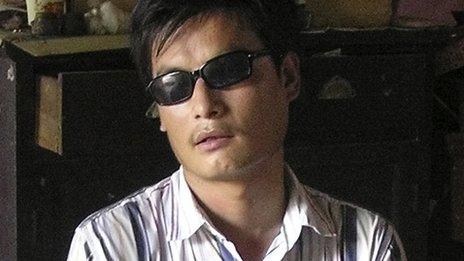UK can end Julian Assange row - Ecuador's Rafael Correa
- Published
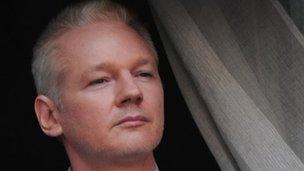
Julian Assange has been at the embassy since June in a bid to avoid extradition to Sweden
The diplomatic row over Julian Assange "could be ended tomorrow" if Britain gave him safe passage to Ecuador, the country's president has told the BBC.
But Rafael Correa said without that, the situation could go on for years.
The UK Foreign Office has written to the Ecuadorean embassy in London, where the Wikileaks founder has taken refuge from extradition to Sweden.
A Foreign Office source said the letter was aimed at "calming things down" and allowing talks to resume.
Ecuadorean embassy officials had said they had had no contact with UK officials for a week.
Foreign ministers from across Latin America are meeting in Washington to discuss the threat which Ecuador says the UK made last week to enter the building to arrest Mr Assange.
A delegation of ambassadors from several countries in that region has gathered at Ecuador's London embassy to watch the televised talks.
The UK has denied making any threats. On the eve of the meeting, the Foreign Office said it had sent the Ecuadorean embassy an official letter but it declined to say what it contained.
A statement said: "As we made clear, we remain committed to a diplomatic solution."
BBC diplomatic correspondent Bridget Kendall says the UK has always insisted it wants to negotiate a solution with Ecuador through dialogue and probably wanted to reiterate that point ahead of Friday's meeting, where it expects a large majority of Latin American countries to side with Ecuador.
Australian citizen Mr Assange, 41, has been at Ecuador's London embassy since June in a bid to avoid being sent to Sweden to face sex assault claims, which he denies.
The UK has insisted it has a "legal obligation" to see Mr Assange sent to Sweden, where prosecutors want to question him.
It has previously indicated that the Diplomatic and Consular Premises Act 1987, external provided it with powers to enter the embassy to arrest him.
The UK has also made it clear he will be arrested if he leaves the embassy.
In an interview with the BBC, Mr Correa said: "This could end tomorrow if the UK grants safe passage, or it could go on for months and years if Mr Assange can't leave the embassy of Ecuador in London."
Officials from Ecuador earlier told an embassy briefing they were hopeful a "compromise" could be found but said Mr Assange could stay inside the London embassy for "as long as it takes".
Air bed
"He can stay here for eight years... two centuries. However long he wants," said one.
The officials said they were "surprised" the UK government had not withdrawn its "threat" to enter the embassy. It was not a condition of talks being held, but would be an "indication of good faith".
Meanwhile, details have emerged of the actions staff at the embassy took when Mr Assange arrived there without warning on 14 June.
An air bed was taken there from the home of the Ecuadorean ambassador so Mr Assange could sleep in one of the rooms in the ground floor of the building.
Officials said it had been a "big surprise" when he arrived.
They said that up to 50 police officers had arrived at the embassy last week soon after it was revealed the UK had notified Ecuador of its powers to withdrew the embassy's diplomatic status and enter the building - with some climbing a fire escape and one standing outside a toilet.
In May the UK Supreme Court dismissed Mr Assange's bid to reopen his appeal against extradition and gave him a two-week grace period - during which he entered the embassy - before extradition proceedings could start.
The US is carrying out an investigation into Wikileaks, which has published a mass of leaked diplomatic cables, embarrassing several governments and international businesses.
In 2010, two female Wikileaks supporters accused Mr Assange of committing sexual offences against them while he was in Stockholm to give a lecture.
He claims the sex was consensual and the allegations are politically motivated. He says he fears onward extradition to the US if extradited to Sweden because of his website's publication of confidential documents.
- Published21 August 2012
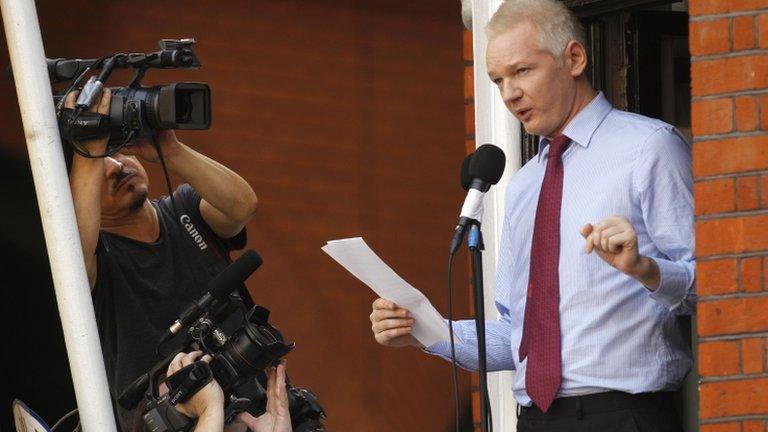
- Published21 August 2012
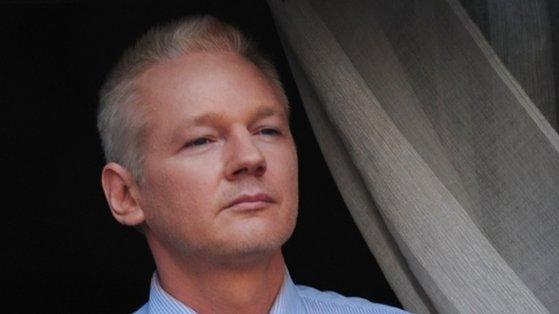
- Published20 August 2012
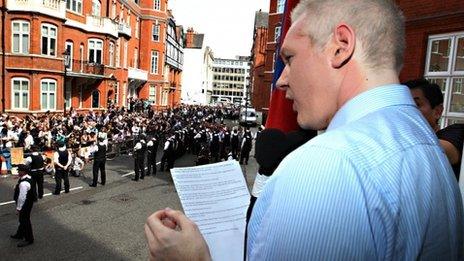
- Published20 August 2012
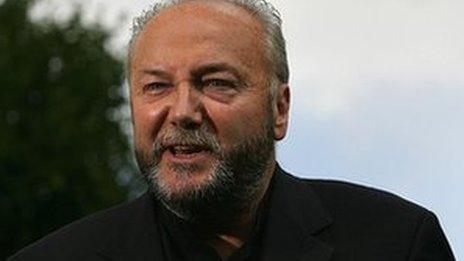
- Published20 August 2012
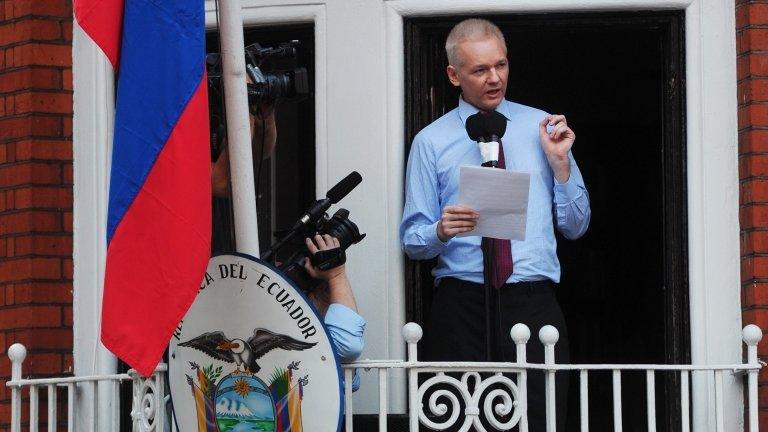
- Published20 August 2012

- Published25 June 2024
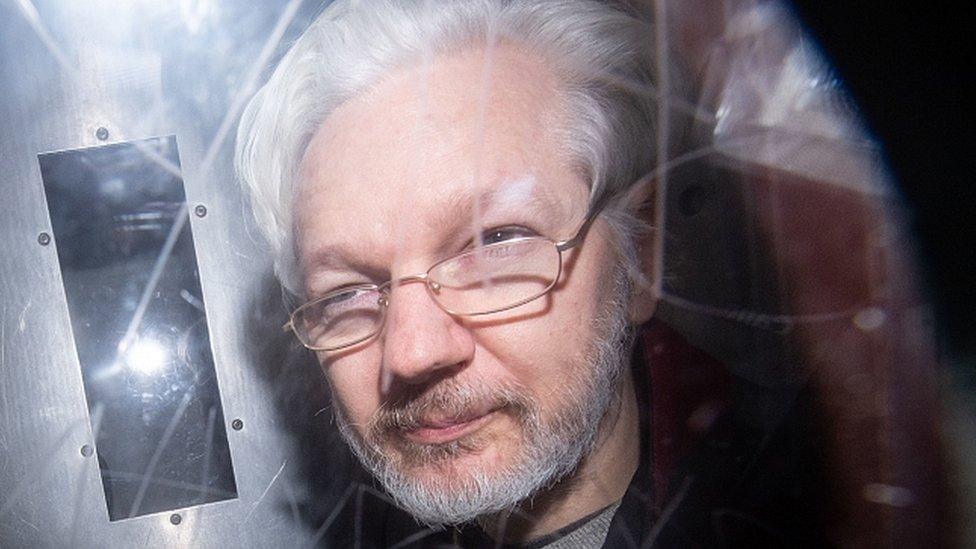
- Published16 August 2012
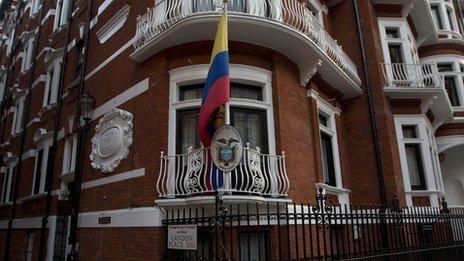
- Published18 August 2012
_afp.jpg)
- Published2 May 2012
